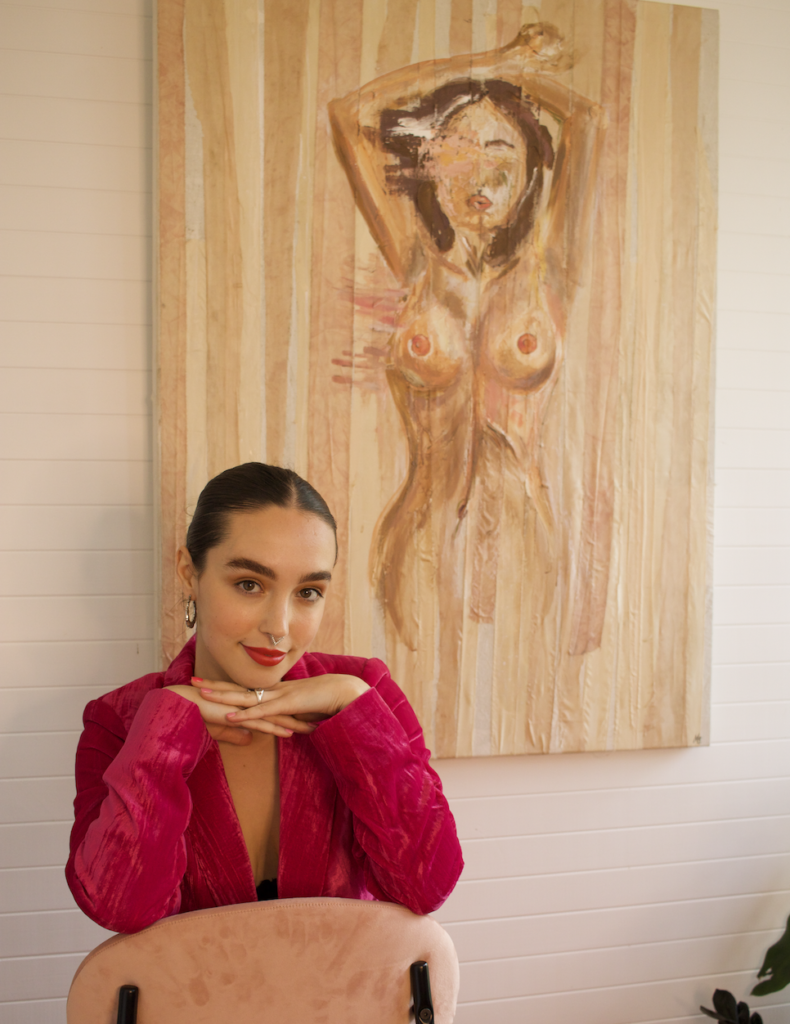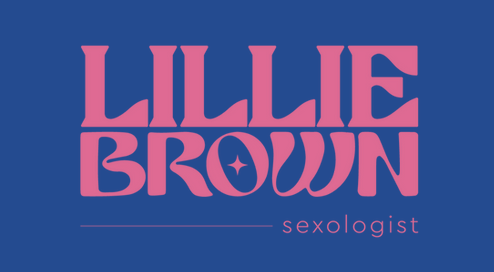Hey Lillie! Tell us about yourself and how you became a Somatic Sexologist.
Howdy! Maybe it was my Catholic school education or maybe it was Friday night sleepovers watching Girls of the Playboy Mansion, but I’ve always been fascinated by sex, pleasure, and relationships. When I was fifteen, I was scrolling through Instagram and discovered a sexologist’s account and realised this was a job! So, I leapt to study Somatic Sexology.
Somatic Sexology melds somatics—the process of focusing on our physical perceptions and experiences—with sexology—the scientific study of sexuality. I use mindfulness, breathwork, and body scans along with recent research to help clients have more embodied, satisfying sex lives.
But it’s not all about sex. Much of my work involves supporting people to co-create healthy relationships and communication styles, and nervous system education to give people practical, body-based tools to regulate their stress response.
I offer 1:1 sessions, regularly host pleasure-focused events, and write and speak about sex whenever I can. I’m also a bonafide hornbag and I’ve got the tattoo to prove it.

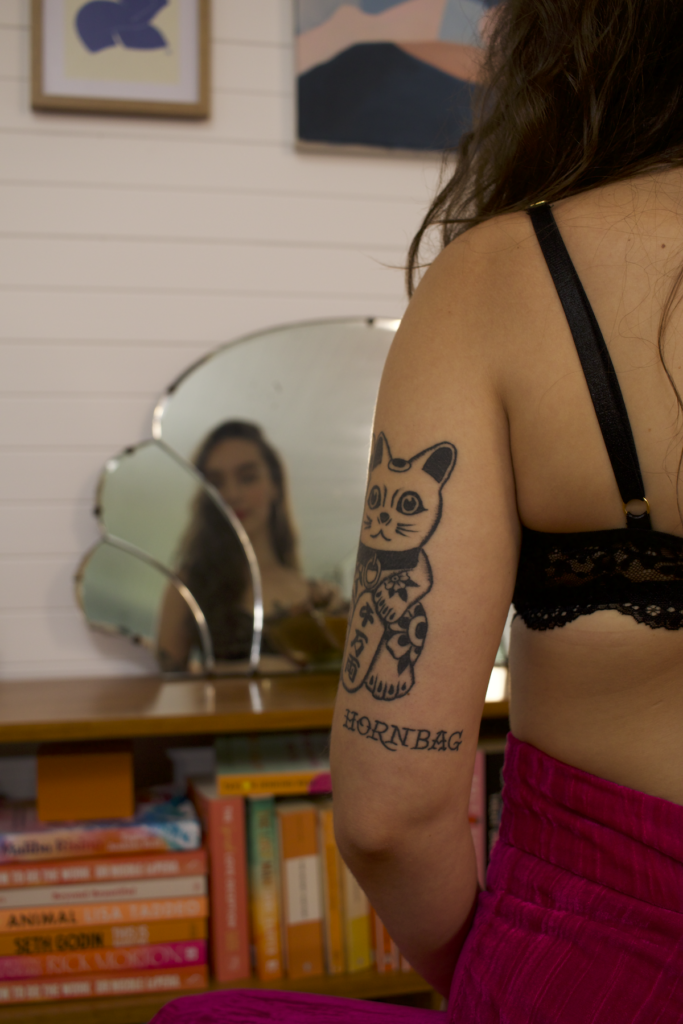
How does your approach intertwine with trauma-informed education to support women in reclaiming their sexual empowerment and confidence?
My work is designed to be trauma-informed. We still live in a culture that objectifies our bodies and sexualities, often leading to trauma. One in five Australian women has experienced sexual violence, however, we know that these figures are far higher. Therefore, I prioritise the consideration of this trauma as a pillar of my practice.
In a session with a new client, I discovered their complex trauma history. We worked together to set a goal for our work, which I suggested might involve reclaiming their body and finding pleasure. They paused before sharing “This doesn’t feel like reclaiming to me, my body and sexuality were never mine to begin with. They’ve always been taken from me and used for someone else’s gratification.” So instead, we shifted our focus to exploring their body and sexuality. The language we use wields so much power.
Working in a trauma-informed way means that I centre my client’s physical, emotional, and psychological safety and their sense of choice. We work slowly and intentionally, and the client has complete agency over what we explore and the pace at which we do so. This creates a safe space for women to process, explore, and learn—on their own terms.
You focus on “redefining pleasure” for women. How do you navigate societal norms and past traumas to help individuals establish their definitions of pleasure and empowerment?
This is a big question and before we get into the nitty and gritty, it’s important to acknowledge that pleasure is often considered trivial, something we must earn or be rewarded for, especially for women, femmes, and non-binary individuals.
It’s only after acknowledging this fraught relationship with pleasure that we can begin to create one that feels more nourishing. I believe that pleasure—in all of its forms—is our birthright.
Women’s bodies are often viewed as something to be fixed and sex is portrayed as something that happens to them. Even in 2024, the idea of women being fully expressive and sovereign sexual beings with their unique desires is still considered radical.
In our sessions, we unpack societal norms around sexuality, exploring thoughts, beliefs, and influences shaping them. We choose what resonates, reject what doesn’t, and rewrite our sexual stories.
I’m not the authority on their body, sexual expression, or desires. They are. We co-create these explorations together and over time, I am immeasurably privileged to witness women engage with their sexual selves on their terms and embody a deep level of sexual confidence.
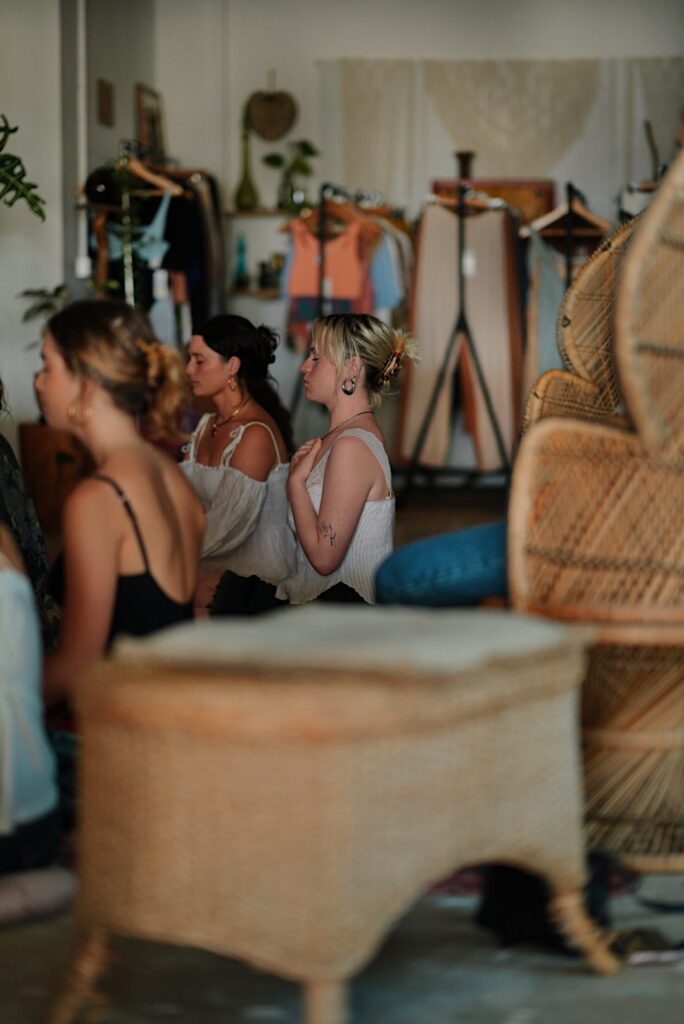
How do you integrate somatic practices into your coaching to help women cultivate a deeper connection with their bodies and sexuality, ultimately fostering confidence and self-esteem?
Studying sexology through a somatic lens was an intentional choice. We’re living through a crisis where hustle culture is something to aspire to. Ignoring our basic needs can desensitise us to our body’s signals to eat, drink, rest, move, and connect. Over time, this can make it harder to recognise and respond to these cues.
Somatic practices build and strengthen our mind-body connection. They help us integrate all parts of ourselves, even the raw, messy bits we’d rather keep shrouded in shadow. You can’t intellectualise your way to a deeper connection with your body and sexuality. It’s an inherently embodied process.
The skills and self-knowledge you develop through Somatic Sexology are skills for life itself. Being present in your body, communicating and connecting effectively and compassionately, luxuriating in the present moment, regulating your nervous system, processing your emotions, and identifying your wants and needs – these are all important aspects of personal growth.
These skills are the necessary ingredients for toe-curling pleasure. But what we don’t often talk about is how they allow you to live a rich, fully expressed life dripping with embodied confidence.
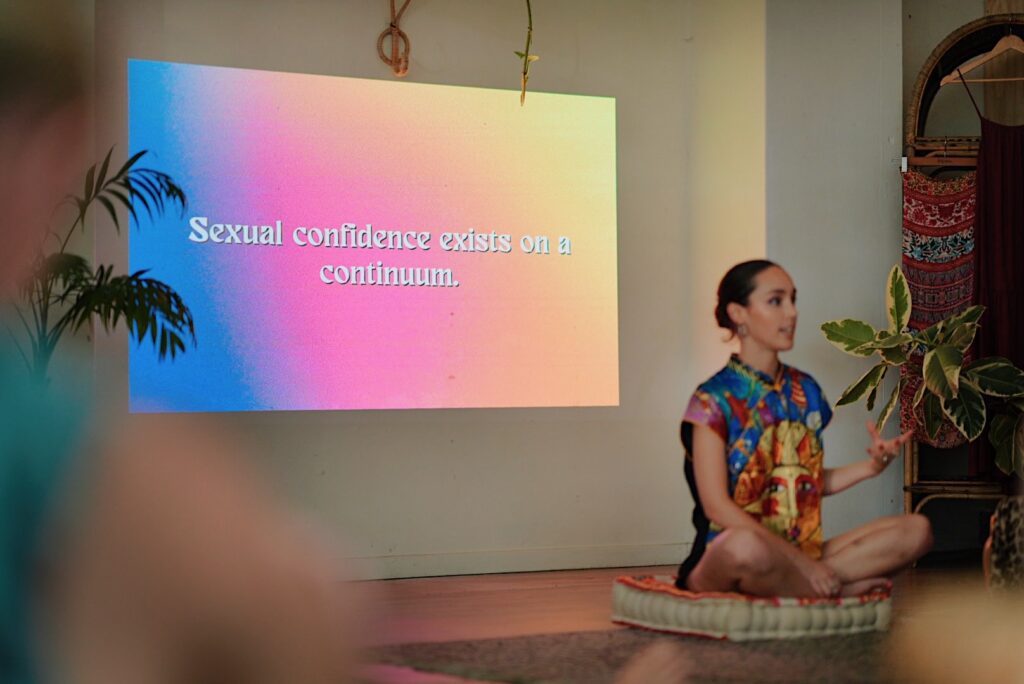
Your work emphasises the importance of understanding one’s desires and boundaries. How do you guide women through this process, especially those who have had their sexuality shamed?
I think almost every woman has experienced some degree of shame and repression around their sexuality. Sexual shame is a byproduct of our sex-negative society which objectifies women’s sexuality for the male gaze. We’re conditioned to be sexual, but not seen as a slut. We’re expected to comply with our partner’s desires and express our sexuality in a narrow, binary way. This often leads to a disconnect between our true desires and what society deems acceptable.
Once we understand all of the external influences on our sexual expression, we can then get experimental and begin shaping an erotic blueprint that feels aligned with who we are as unique, multifaceted women. “What are your touch preferences and boundaries? What increases your desire and confidence during and after sex?” Prompts like this are an illuminating way to begin to understand your sexuality. Then, it’s time to put these hot and horny insights into practice!
Once you’ve figured out what it is you desire, we can then delve into how to communicate this—whether it be with your partner, a fling or just a reminder to yourself.
Can you elaborate on the role of consent in your coaching sessions and workshops, and how you empower women to assert their boundaries and desires in their intimate relationships?
With safe partners, learning to assert our boundaries and desires creates an equitable (and hot AF) environment for us to express our sexual selves. Our understanding of consent is rudimentary at best and it’s so much more than saying ‘yes’ or ‘no’ to sex. Consent is the process of being present, being free, and being able to have a say.
People often share with me that asking for consent feels awkward and ‘ruins’ the mood. However, discussing consent, boundaries, and desires can be done in a way that is sexy! Before sex, ask your partner what type of sexual experience they’re in the mood for. Here are some phrases you can use in the heat of the moment that can double as dirty talk:
- Show me where to touch you
- Would you like firmer or lighter pressure?
- Do you want me to keep going?
- Can I take your shirt/pants/dress off?
Asking for consent can be a major turn-on, while simultaneously deepening the trust and connection between you. And pay attention to non-verbal cues too—things like body language and whether someone moves away or toward your touch.
Your approach includes supporting women in building healthy relationships. How do you address the intersectionality of sexuality and identity in your practice to create a safe and inclusive space for all?
use intersectionality in my work to explore how different factors, including identity and sexuality, affect our relationships with ourselves and others. This approach recognises the interconnectedness of all forms of oppression and aims to name external influences, such as systemic oppression, that shape our sexual expression and perception. By doing so, we can work towards developing healthier and more fulfilling relationships.
This creates a holistic space where women, femmes, and non-binary folks can be seen and heard as they process and rewrite their relational patterns.
Intersections of my identity are embedded into my practice too—I’m neurodiverse, part of the LGBTQIA+ community, and identify as a woman. This is something that I’m open about and I believe that this is an important way to humanise the client-practitioner relationship. And let’s be real—in our fast-paced, technology-laden world, making it more human is always a good thing.
Lillie my love it has been a pleasure. Peruse her website and book a session below or find her on Instagram @sexwithlillie
Read more of our Partnership articles here.

